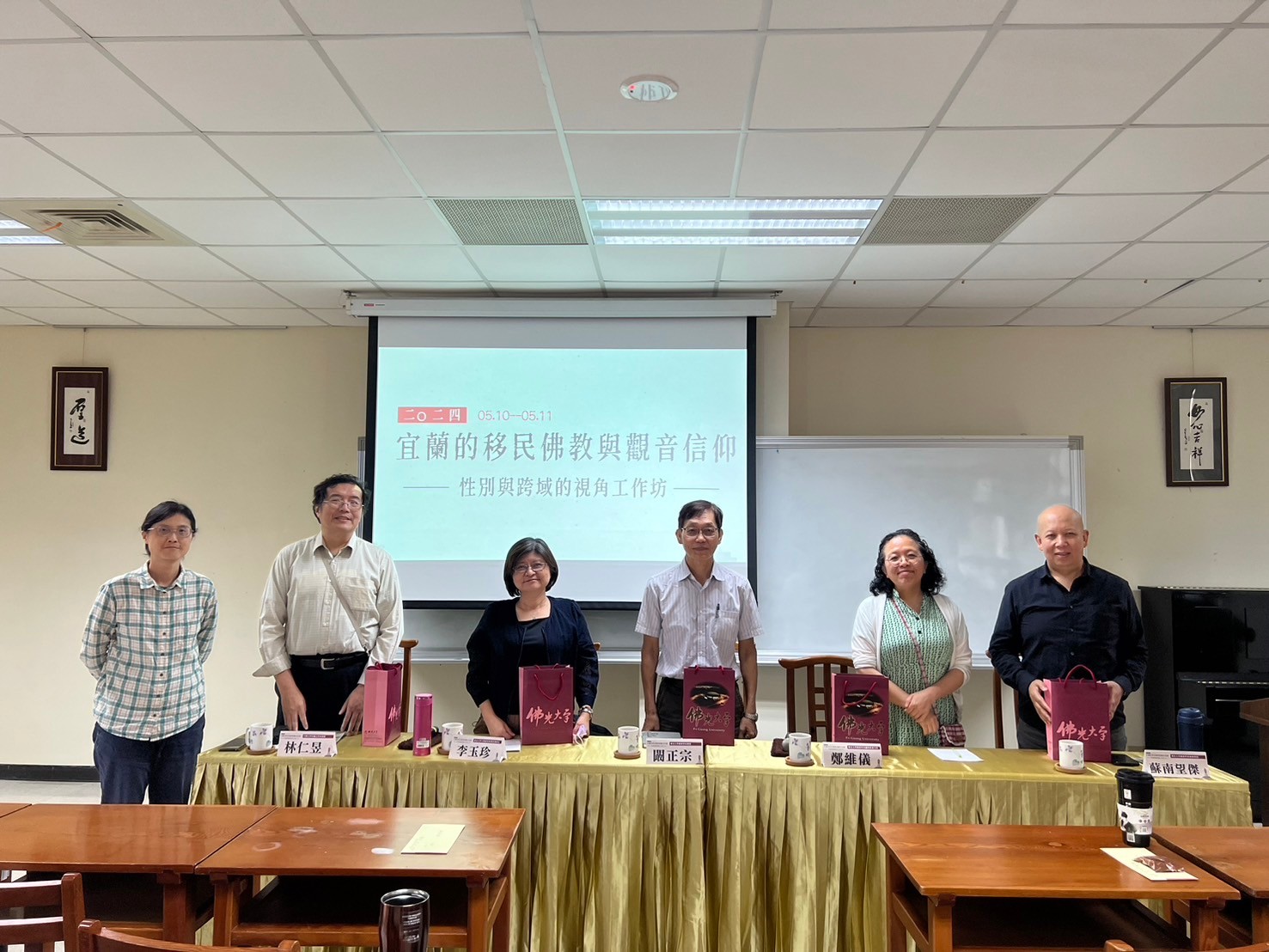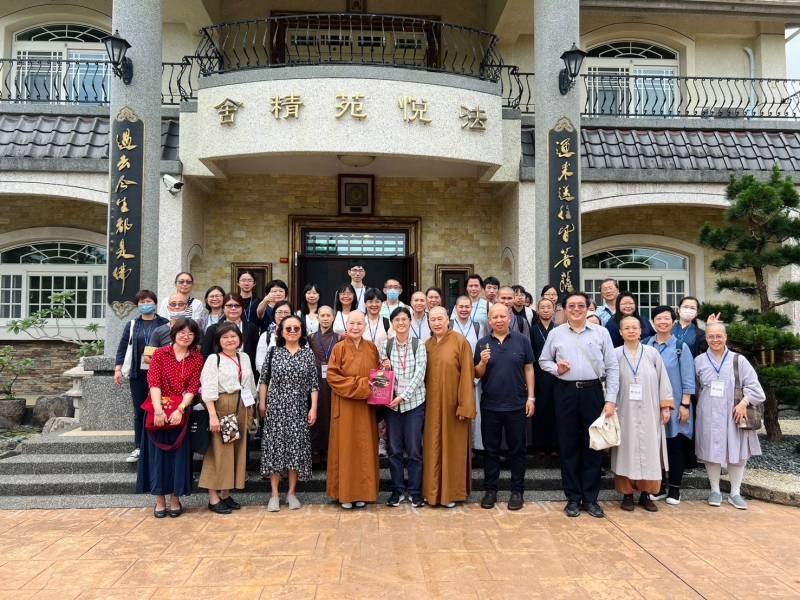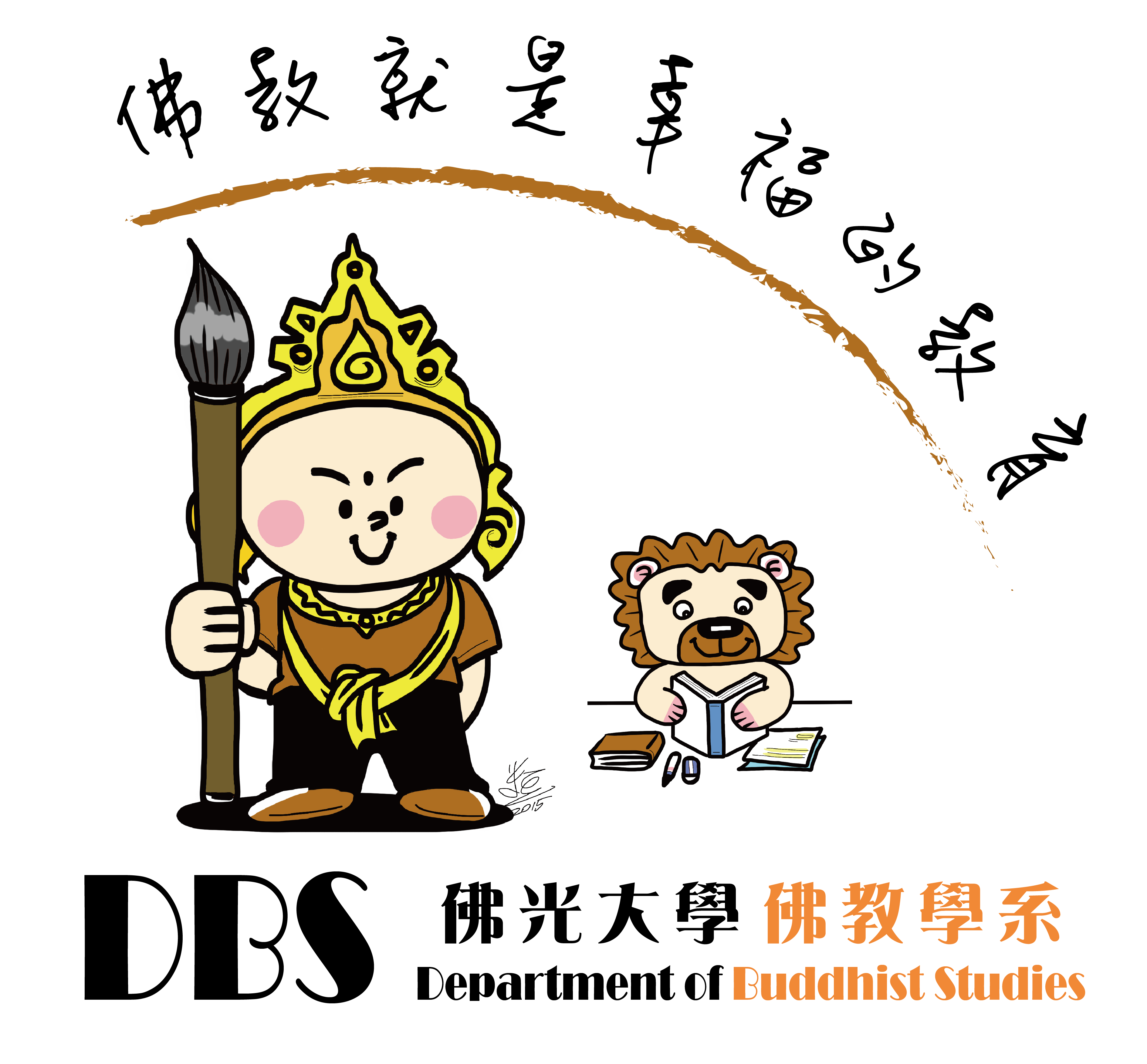On May 10th and 11th, Fo Guang University's Center for Buddhist Studies, in collaboration with the National Chengchi University's Center for the Study of Chinese Religions and the Fo Guang University's College of Buddhist Studies, jointly hosted a workshop on "Migrants' Buddhism and Guanyin Cult in Yilan." The two-day workshop was divided into two parts: "Special Lectures" and "Field Investigation." The event invited scholars such as Professor Yucheng Li from National Chengchi University, Professor Jen-Yu Lin from National Chung Hsing University, and Pro. Wei-Yi Cheng, Prof. Cheng-Tsung Kan , and Prof. Wang Yal Sonam from the Fo Guang University's Department of Buddhist Studies. They not only shared their experiences and current status of field investigations through pre-field investigation special lectures but also led the participants to five temples in Yilan County for on-site investigations and interviews on the second day. The workshop attracted more than 60 enthusiastic participants, including teachers and students.

On May 10th, the "Special Lectures" were enthusiastically launched at Yunshui Building in the Fo Guang University's College of Buddhist Studies. The lectures were divided into two main themes: "Gender" and "Localization." At the beginning of the lecture, Professor Hsin-Yi Lin, the executive secretary of the Fo Guang University's Center for Buddhist Studies, explained that "Buddhist research can be diverse, including discussions on classics, literature, and principles, as well as Buddhist rituals and activities covering birth, aging, sickness, and death in daily life. We hope that through this workshop, we can show everyone the living Buddhist world in the Yilan area, brought by new immigrants such as Tibetan Buddhism and Vietnamese Buddhism, as well as the Guanyin belief introduced during the Japanese colonial period." She also hoped that the students would delve deeper into these different aspects in the future. During the lectures, Professor Yuchen Li shared her photos and interview records of multiple visits to the Cihui Temple in Yuanshan, Yilan, explaining the development history and uniqueness of the Guanyin cult at Cihui Temple. Professor Jen-yu Lin shared information collected over the years on the stone Guanyin statues and related historical records left from the Japanese colonial period. Through comparative analysis with geographical environment and urban development information, he constructed the Buddhist life circle of Japanese immigrants in Yilan. Professor Wei-Yi Cheng not only shared her insights and experiences from years of fieldwork but also illustrated a new model of the development of Vietnamese immigrant Buddhism in Taiwan by taking the example of Master Chunjing, a graduate of the Fo Guang University's Department of Buddhist Studies, who established Vietnamese Buddhist centers and conducted Dharma propagation activities in Luodong, Yilan, and Taipei. Professor Wang Yal Sonam introduced the four-armed Guanyin belief in Tibetan Buddhism and a Buddhist group promoting Tibetan Buddhism in the Sanshing area. In the last part of the lecture, Professor Cheng-Tsung Kan, who has focused on the investigation of Buddhist temples in Yilan in recent years, concluded and wished the participants a smooth field investigation the next day.
 On May 11th, under the leadership of Professor Hsin-Yi Lin , 42 participants in the field investigation visited the Fayuanyuan Temple in Sanshing Township, Yilan, led by a Tibetan lama, and the Ganquan Temple, built and operated by local gentry. The participants were then warmly hosted for a sumptuous vegetarian lunch at the Luodong Shanfa Temple, where Master Cilang, who has presided over the temple for 45 years, explained the history of the temple's construction and annual events in detail. He also introduced the history and legends of the Japanese stone Guanyin enshrined in the temple. In the afternoon, the participants visited Beihou Temple, which houses a culturally significant clay Buddha statue. They learned about the unique development of the temple, which transitioned from a traditional shrine to a Buddhist temple, and gained a profound understanding of localization and cultural preservation efforts. The last stop was the historic Yuanshan Dazhuang Cihui Temple, where Professor Li and the temple staff explained the festival rituals and daily religious activities, providing a comprehensive understanding of the Guanyin belief in Yilan. Through two days of lectures and fieldwork, participants not only gained valuable field experiences from professors like Yuchen Li but also interacted with temple staff and volunteers engaged in religious activities. They experienced firsthand how to start temple field investigations. All participants expressed that they had gained a lot and looked forward to similar activities in the future.
On May 11th, under the leadership of Professor Hsin-Yi Lin , 42 participants in the field investigation visited the Fayuanyuan Temple in Sanshing Township, Yilan, led by a Tibetan lama, and the Ganquan Temple, built and operated by local gentry. The participants were then warmly hosted for a sumptuous vegetarian lunch at the Luodong Shanfa Temple, where Master Cilang, who has presided over the temple for 45 years, explained the history of the temple's construction and annual events in detail. He also introduced the history and legends of the Japanese stone Guanyin enshrined in the temple. In the afternoon, the participants visited Beihou Temple, which houses a culturally significant clay Buddha statue. They learned about the unique development of the temple, which transitioned from a traditional shrine to a Buddhist temple, and gained a profound understanding of localization and cultural preservation efforts. The last stop was the historic Yuanshan Dazhuang Cihui Temple, where Professor Li and the temple staff explained the festival rituals and daily religious activities, providing a comprehensive understanding of the Guanyin belief in Yilan. Through two days of lectures and fieldwork, participants not only gained valuable field experiences from professors like Yuchen Li but also interacted with temple staff and volunteers engaged in religious activities. They experienced firsthand how to start temple field investigations. All participants expressed that they had gained a lot and looked forward to similar activities in the future.
 College and Department of Buddhist Studies, FGU
College and Department of Buddhist Studies, FGU